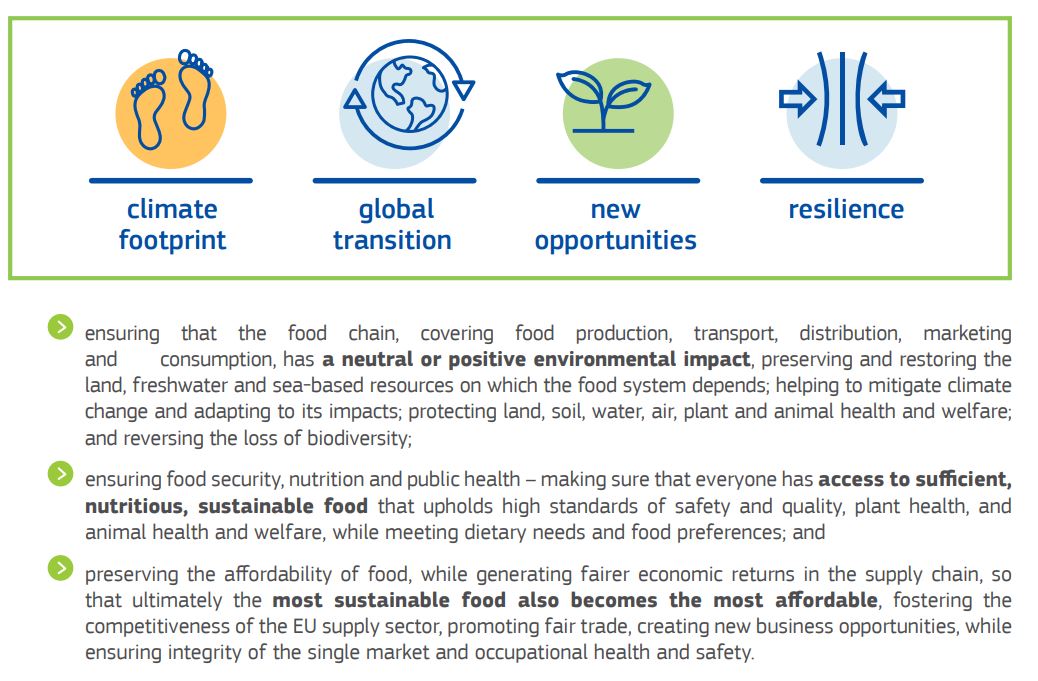European Commission| Source | Download |
The Farm to Fork Strategy, a core component of the European Green Deal, aims at transforming food systems into equitable, healthy, and eco-friendly models. It adopts a holistic approach, balancing regulatory and non-regulatory measures, fostering innovation, and promoting international collaboration.
Key Objectives
- Environmental Neutrality: Strive for food systems with neutral or positive environmental impacts, mitigating climate change, and reversing biodiversity loss.
- Food Security and Nutrition: Ensure food security, nutrition, and public health, guaranteeing universal access to safe, nutritious, and sustainable food.
- Economic Fairness: Generate fair economic returns and livelihoods for all stakeholders, particularly primary producers, promoting competitiveness and fair trade.
- Technological Integration: Embrace new technologies and scientific discoveries to enhance sustainability, meeting the growing demand for eco-friendly food.
Implementation Strategies
- Legislative Framework: Propose a comprehensive legislative framework supporting sustainable food systems, leveraging common agricultural and fisheries policies.
- Contingency Planning: Develop a contingency plan, informed by lessons from the COVID-19 pandemic, to ensure food supply and security.
- Global Transition Support: Utilize trade policies and international cooperation instruments to facilitate the global transition to sustainable agri-food systems.
- Research and Innovation: Invest in research, innovation, and advisory services to address challenges, identify solutions, and unlock market opportunities.





